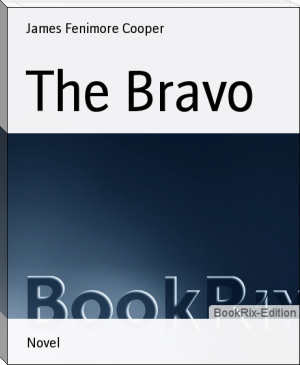Catriona by Robert Louis Stevenson (best motivational books of all time TXT) 📖

- Author: Robert Louis Stevenson
Book online «Catriona by Robert Louis Stevenson (best motivational books of all time TXT) 📖». Author Robert Louis Stevenson
“Catriona,” said I, “I am in a very painful situation; or rather, so we are both; and I would be a good deal obliged to you if you would promise to let me speak through first of all, and not to interrupt me till I have done.”
She promised me that simply.
“Well,” said I, “this that I have got to say is very difficult, and I know very well I have no right to be saying it. After what passed between the two of us last Friday, I have no manner of right. We have got so ravelled up (and all by my fault) that I know very well the least I could do is just to hold my tongue, which was what I intended fully, and there was nothing further from my thoughts than to have troubled you again. But, my dear, it has become merely necessary, and no way by it. You see, this estate of mine has fallen in, which makes of me rather a better match; and the—the business would not have quite the same ridiculous-like appearance that it would before. Besides which, it’s supposed that our affairs have got so much ravelled up (as I was saying) that it would be better to let them be the way they are. In my view, this part of the thing is vastly exagerate, and if I were you I would not wear two thoughts on it. Only it’s right I should mention the same, because there’s no doubt it has some influence on James More. Then I think we were none so unhappy when we dwelt together in this town before. I think we did pretty well together. If you would look back, my dear—”
“I will look neither back nor forward,” she interrupted. “Tell me the one thing: this is my father’s doing?”
“He approves of it,” said I. “He approved I that I should ask your hand in marriage,” and was going on again with somewhat more of an appeal upon her feelings; but she marked me not, and struck into the midst.
“He told you to!” she cried. “It is no sense denying it, you said yourself that there was nothing farther from your thoughts. He told you to.”
“He spoke of it the first, if that is what you mean,” I began.
She was walking ever the faster, and looking fain in front of her; but at this she made a little noise in her head, and I thought she would have run.
“Without which,” I went on, “after what you said last Friday, I would never have been so troublesome as make the offer. But when he as good as asked me, what was I to do?”
She stopped and turned round upon me.
“Well, it is refused at all events,” she cried, “and there will be an end of that.”
And she began again to walk forward.
“I suppose I could expect no better,” said I, “but I think you might try to be a little kind to me for the last end of it. I see not why you should be harsh. I have loved you very well, Catriona—no harm that I should call you so for the last time. I have done the best that I could manage, I am trying the same still, and only vexed that I can do no better. It is a strange thing to me that you can take any pleasure to be hard to me.”
“I am not thinking of you,” she said, “I am thinking of that man, my father.”
“Well, and that way, too!” said I. “I can be of use to you that way, too; I will have to be. It is very needful, my dear, that we should consult about your father; for the way this talk has gone, an angry man will be James More.”
She stopped again. “It is because I am disgraced?” she asked.
“That is what he is thinking,” I replied, “but I have told you already to make nought of it.”
“It will be all one to me,” she cried. “I prefer to be disgraced!”
I did not know very well what to answer, and stood silent.
There seemed to be something working in her bosom after that last cry; presently she broke out, “And what is the meaning of all this? Why is all this shame loundered on my head? How could you dare it, David Balfour?”
“My dear,” said I, “what else was I to do?”
“I am not your dear,” she said, “and I defy you to be calling me these words.”
“I am not thinking of my words,” said I. “My heart bleeds for you, Miss Drummond. Whatever I may say, be sure you have my pity in your difficult position. But there is just the one thing that I wish you would bear in view, if it was only long enough to discuss it quietly; for there is going to be a collieshangie when we two get home. Take my word for it, it will need the two of us to make this matter end in peace.”
“Ay,” said she. There sprang a patch of red in either of her cheeks. “Was he for fighting you?” said she.
“Well, he was that,” said I.
She gave a dreadful kind of laugh. “At all events, it is complete!” she cried. And then turning on me. “My father and I are a fine pair,” said she, “but I am thanking the good God there will be somebody worse than what we are. I am thanking the good God that he has let me see you so. There will never be the girl made that will not scorn you.”
I had borne a good deal pretty patiently, but this was over the mark.
“You have no right to speak to me like that,” said I. “What have I done but to be good to you, or try to be? And here is my repayment! O, it is too much.”
She kept looking at me with a hateful smile. “Coward!” said she.
“The word in your throat and in your father’s!” I cried. “I have dared him this day already in your interest. I will dare him again, the nasty pole-cat; little I care which of us should fall! Come,” said I, “back to the house with us; let us be done with it, let me be done with the whole Hieland crew of you! You will see what you think when I am dead.”
She shook her head at me with that same smile I could have struck her for.
“O, smile away!” I cried. “I have seen your bonny father smile on the wrong side this day. Not that I mean he was afraid, of course,” I added hastily, “but he preferred the other way of it.”
“What is this?” she asked.
“When I offered to draw with him,” said I.
“You offered to draw upon James More!” she cried.
“And I did so,” said I, “and found him backward enough, or how would we be here?”
“There is a meaning upon this,” said she. “What is it you are meaning?”
“He was to make you take me,” I replied, “and I would not have it. I said you should be free, and I must speak with you alone; little I supposed it would be such a speaking! ‘And what if I refuse?’ said he.—‘Then it must come to the throat-cutting,’ says I, ‘for I will no more have a husband forced on that young lady, than what I would have a wife forced upon myself.’ These were my words, they were a friend’s words; bonnily have I paid for them! Now you have refused me of your own clear free will, and there lives no father in the Highlands, or out of them, that can force on this marriage. I will see that your wishes are respected; I will make the same my business, as I have all through. But I think you might have that decency as to affect some gratitude. ’Deed, and I thought you knew me better! I have not behaved quite well to you, but that was weakness. And to think me a coward, and such a coward as that—O, my lass, there was a stab for the last of it!”
“Davie, how would I guess?” she cried. “O, this is a dreadful business! Me and mine,”—she gave a kind of a wretched cry at the word—“me and mine are not fit to speak to you. O, I could be kneeling down to you in the street, I could be kissing your hands for forgiveness!”
“I will keep the kisses I have got from you already,” cried I. “I will keep the ones I wanted and that were something worth; I will not be kissed in penitence.”
“What can you be thinking of this miserable girl?” says she.
“What I am trying to tell you all this while!” said I, “that you had best leave me alone, whom you can make no more unhappy if you tried, and turn your attention to James More, your father, with whom you are like to have a queer pirn to wind.”
“O, that I must be going out into the world alone with such a man!” she cried, and seemed to catch herself in with a great effort. “But trouble yourself no more for that,” said she. “He does not know what kind of nature is in my heart. He will pay me dear for this day of it; dear, dear, will he pay.”
She turned, and began to go home and I to accompany her. At which she stopped.
“I will be going alone,” she said. “It is alone I must be seeing him.”
Some little time I raged about the streets, and told myself I was the worst used lad in Christendom. Anger choked me; it was all very well for me to breathe deep; it seemed there was not air enough about Leyden to supply me, and I thought I would have burst like a man at the bottom of the sea. I stopped and laughed at myself at a street corner a minute together, laughing out loud, so that a passenger looked at me, which brought me to myself.
“Well,” I thought, “I have been a gull and a ninny and a soft Tommy long enough. Time it was done. Here is a good lesson to have nothing to do with that accursed sex, that was the ruin of the man in the beginning and will be so to the end. God knows I was happy enough before ever I saw her; God knows I can be happy enough again when I have seen the last of her.”
That seemed to me the chief affair: to see them go. I dwelled upon the idea fiercely; and presently slipped on, in a kind of malevolence, to consider how very poorly they were likely to fare when Davie Balfour was no longer by to be their milk-cow; at which, to my very own great surprise, the disposition of my mind turned bottom up. I was still angry; I still hated her; and yet I thought I owed it to myself that she should suffer nothing.
This carried me home again at once, where I found the mails drawn out and ready fastened by the door, and the father and daughter with every mark upon them of a recent disagreement. Catriona was like a wooden doll; James More breathed hard, his face was dotted with white spots, and his nose upon one side. As soon as I came in, the girl looked at him with a steady, clear, dark look that might have been followed by a blow. It was a hint that was more contemptuous than a command, and I was surprised to see James More accept it. It was plain he had had a master talking-to; and I could see there must be more of the devil in the girl than I had guessed, and more good humour about the man than I had given him the credit of.
He began, at least, calling me Mr. Balfour, and plainly speaking from a lesson; but he got not very far, for at the first pompous swell of his voice, Catriona cut in.
“I will tell you what James More is meaning,” said she. “He means we have come to you, beggar-folk, and have not behaved to you very well, and we are ashamed of our ingratitude and ill-behaviour. Now we are wanting to go away and be forgotten; and my father will have guided
 Have you ever thought about what fiction is? Probably, such a question may seem surprising: and so everything is clear. Every person throughout his life has to repeatedly create the works he needs for specific purposes - statements, autobiographies, dictations - using not gypsum or clay, not musical notes, not paints, but just a word. At the same time, almost every person will be very surprised if he is told that he thereby created a work of fiction, which is very different from visual art, music and sculpture making. However, everyone understands that a student's essay or dictation is fundamentally different from novels, short stories, news that are created by professional writers. In the works of professionals there is the most important difference - excogitation. But, oddly enough, in a school literature course, you don’t realize the full power of fiction. So using our website in your free time discover fiction for yourself.
Have you ever thought about what fiction is? Probably, such a question may seem surprising: and so everything is clear. Every person throughout his life has to repeatedly create the works he needs for specific purposes - statements, autobiographies, dictations - using not gypsum or clay, not musical notes, not paints, but just a word. At the same time, almost every person will be very surprised if he is told that he thereby created a work of fiction, which is very different from visual art, music and sculpture making. However, everyone understands that a student's essay or dictation is fundamentally different from novels, short stories, news that are created by professional writers. In the works of professionals there is the most important difference - excogitation. But, oddly enough, in a school literature course, you don’t realize the full power of fiction. So using our website in your free time discover fiction for yourself. 




Comments (0)